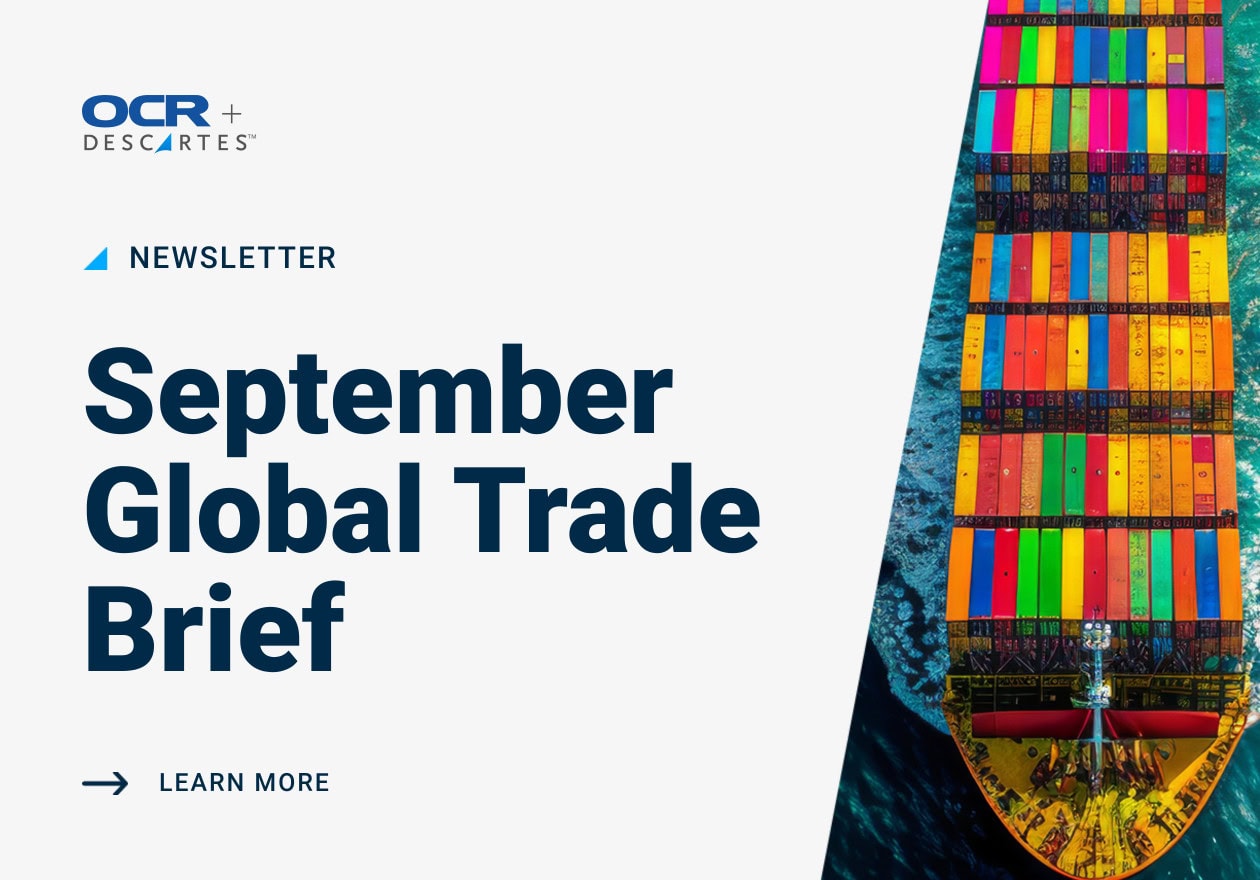INVESTIGATION OF FRANCE’S DIGITAL SERVICES TAX
USTR announced that it has completed the first segment of an investigation of France’s digital services tax under Section 301 of the Trade Act of 1974 and has concluded that France’s digital services tax:
- Discriminates against U.S. companies
- Is inconsistent with prevailing principles of international tax policy
- Is unusually burdensome for affected U.S. companies
The USTR further stated that it will issue for publication in the Federal Register a explaining these findings and soliciting comments from the public on USTR’s proposed action—including additional customs duties of up to 100% on certain French products. That notice will seek comments on the option of imposing fees or restrictions on French services.
The list of French products subject to potential customs duties includes 63 tariff subheadings with an approximate trade value of $2.4 billion. Comments on the proposed action will have to be submitted by January 6, 2020, and post-hearing rebuttal comments by January 14, 2020.
THE U.S. INTERNATIONAL TRADE COMMISSION DECISIONS:
Forged steel fittings from India, Korea
ITC announced that there is a “reasonable indication” that a U.S. industry is threatened with material injury by reason of imports of forged steel fittings from India and Korea.
As noted in the ITC release, the U.S. Commerce Department will continue with its antidumping and countervailing duty investigations. The preliminary countervailing duty determinations are expected on or about January 16, 2020, and preliminary antidumping duty determinations are due on or about March 31, 2020
Polyester textured yarn imported from China and India
ITC announced its determination that a U.S. industry is materially injured by reason of imports of polyester textured yarn from China and India that the U.S. Commerce Department determined are subsidized and sold in the United States at less than fair value. As noted in the ITC release, with the ITC’s “affirmative determinations,” Commerce will issue antidumping and countervailing duty orders on imports of polyester textured yarn from China and India. The ITC also reached “negative findings” concerning critical circumstances with regard to imports of polyester textured yarn from China. Accordingly, imports of polyester textured yarn from China will not be subject to retroactive antidumping and countervailing duties.
INSURANCE COMPANIES SETTLE CUBAN SANCTION REGULATIONS
OFAC announced that two U.S. insurance companies have agreed to settle alleged violations of the Cuban sanction regulations. In one situation, the U.S. insurance company (a wholly owned subsidiary of a German financial services provider) agreed to pay approximately $170,500 to settle about 6,500 violations of the U.S. Cuban sanction regulations voluntarily self-disclosing the apparent violations. OFAC determined that these apparent violations constitute a non-egregious case. In the second situation, the U.S. company (as the successor legal entity to a Swiss company that provided insurance and reinsurance services for commercial and individual customers) agreed to pay about $66,000 to settle almost 22,300 apparent violations of the Cuban sanction regulations. OFAC has determined that a voluntary self-disclosure was made, and that these apparent violations constitute a non-egregious case.
S. IMPLEMENTING LEGISLATION FOR USMCA
The U.S. House of Representatives today passed H.R. 5430, legislation to implement the agreement of the United States, Mexico, and Canada (USMCA) that would replace the North American Free Trade Agreement (NAFTA). With House passage, the legislation is pending consideration in the U.S. Senate.
COMPANY IN VIOLATION OF TERRORISM SANCTIONS REGULATIONS
OFAC issued a release finding that a Texas company had violated the U.S. global terrorism sanctions regulations in negotiating and entering into a contract with an Iranian commercial airline company.
OFAC determined that in 2016, the Texas company violated provisions of the sanctions regulations by dealing in the property and interests in property of the Iranian airline. The Texas company subsequently filed for bankruptcy and eventually dissolved. The OFAC stated that this case “would have justified a strong civil monetary penalty
US CHINA TRADE AGREEMENT
USTR announced that the United States and China have reached an agreement on a “Phase One trade deal” that requires structural reforms and other changes to China’s economic and trade regime in the areas of intellectual property, technology transfer, agriculture, financial services, and currency and foreign exchange.
According to the USTR release, the Phase One agreement also includes a commitment by China that it will make “substantial additional purchases of U.S. goods and services” in the coming years. The USTR reported that the agreement establishes a strong dispute resolution system to provide for prompt and effective implementation and enforcement.
In exchange, the United States agreed to modify its Section 301 tariff actions. The United States first imposed tariffs on imports from China based on the findings of the Section 301 investigation on China’s acts, policies, and practices related to technology transfer, intellectual property, and innovation.
The USTR announced that the United States will be maintaining 25% tariffs on approximately $250 billion of Chinese imports, along with 7.5% tariffs on approximately $120 billion of Chinese imports.
CRAFT BEVERAGE EXCISE TAX PROVISIONS EXTENDED THROUGH 2020
The Alcohol and Tobacco Tax and Trade Bureau (TTB) of the U.S. Treasury Department issued a release noting that the craft beverage modernization and tax reform provisions of the 2017 U.S. tax law (Pub. L. No. 115-97)—the law that is often referred to as the “Tax Cuts and Jobs Act”—have been extended for one additional year, through December 31, 2020. The craft beverage modernization provisions are included in the appropriations legislation that was signed into law by the president on December 20, 2019.
The TTB release (December 23, 2019) briefly notes that the extended craft beverage modernization provisions include:
- Reduced rates of tax and tax credits
- Tax classification changes for certain wines
- Transfer of beer in bond between breweries of different ownership
- Transfer in bond of bottled spirits
In addition to extending that the new law retroactively applies the pre-CBMA small wine producer credit transfer provisions to the CBMA wine credits as if those credit transfer provisions had applied since January 2018.
TTB further noted that beginning January 1, 2020, the alternate procedure authorized by TTB’s Industry Circular 2018-1A will no longer be in effect. TTB stated it will update guidance as well as issue new guidance for bonded wine cellars and wineries that may want to transfer retroactively wine tax credits for 2018 and 2019.



